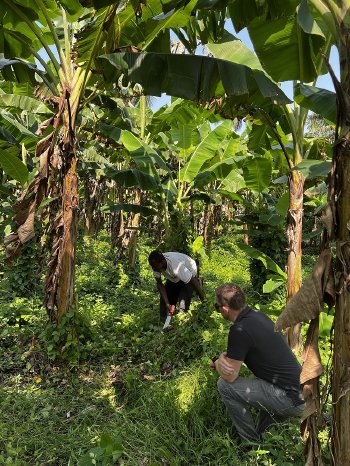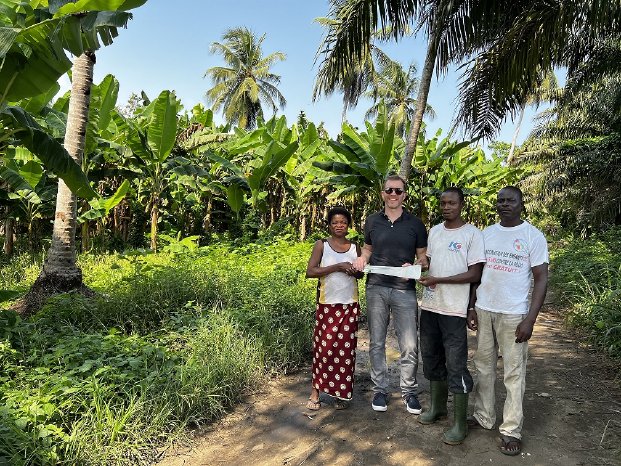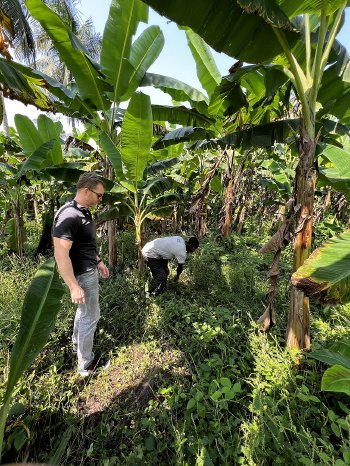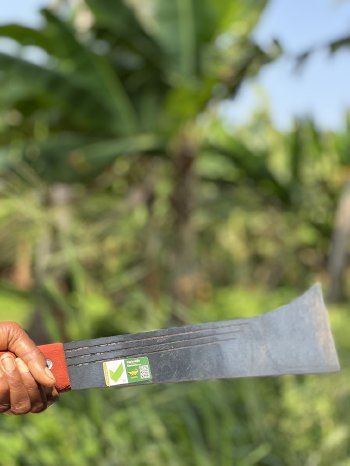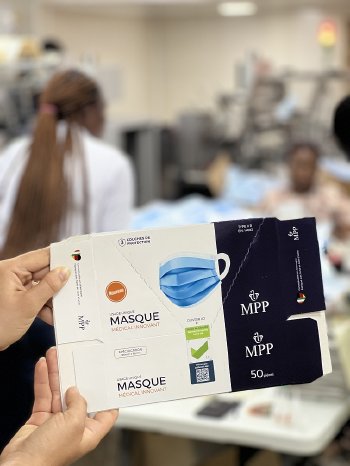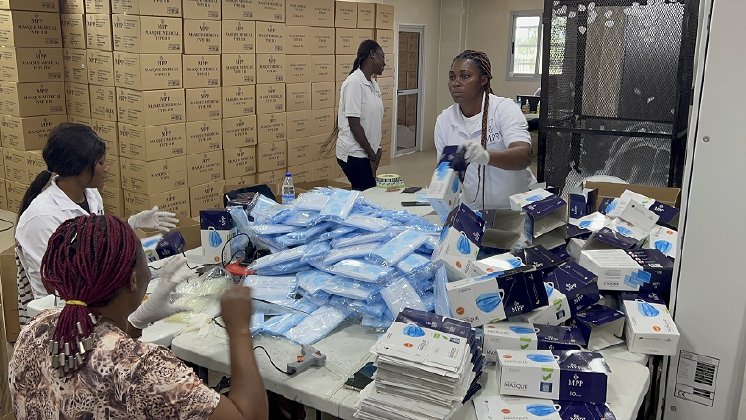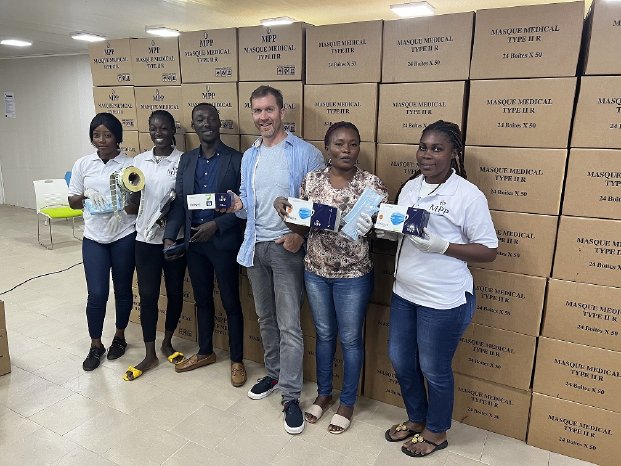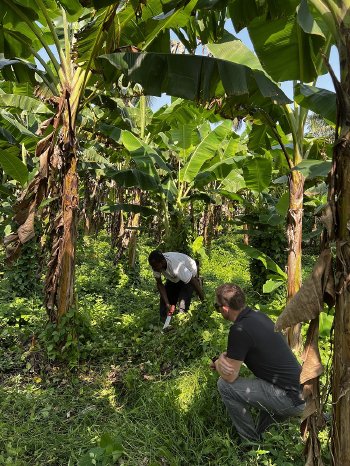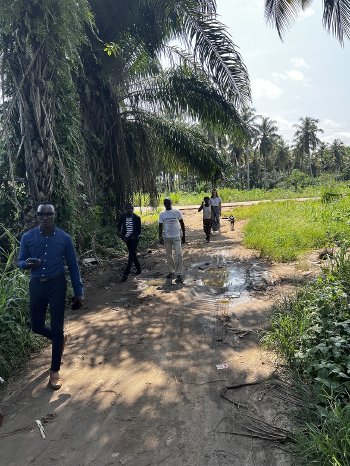Frank Theeg explains: “Our engagement in Africa began with the protection of medical products, providing proof of authenticity for malaria drugs and surgical masks. To this area of activity, we have now added the protection of machetes.” The world’s biggest manufacturer of machetes, which has a subsidiary in Ghana, had approached the German entrepreneur because they had seen a drop in turnover of more than 50% due to counterfeits imported from the Far East. It is an unwelcome development that has severely damaged the local business ecosystem, destroying employment and resulting in farmers working with inferior tools. “It’s about protecting local producers, safeguarding regional economic cycles and keeping jobs in Africa,” adds Theeg. All of this is put at risk because of the counterfeit machetes flooding into the continent from China.
Thanks to the new partnership, the authenticity of the machetes is now guaranteed by means of an app developed by authentic.network. The app encrypts a proprietary code that is printed on sticky labels. When this code is scanned with a mobile phone – an item of equipment that a billion people worldwide already carry around with them – the associated blockchain technology accesses the code and compares it with its digital twin. If there is a successful match, a green tick is displayed on the screen of the mobile phone and the user knows in seconds that the product to be procured is genuine.
Frank Theeg: “Since the launch of our app, we have secured the authenticity of more than 30 million goods in Africa, ranging from malaria medications and surgical masks to machetes. Our vision for the medium term is to protect one billion products with our app. The positive impact this will have on the lives of Africans is immense.”
Authenticity codes combatting deadly counterfeit medicines
The unmanipulable proof of authenticity delivered by authentic.network is a potential life-saver, for example in the distribution of vital medicines. Company CEO Frank Theeg: “According to estimates compiled by the World Health Organization, somewhere between 30 and 60 percent of all medicines in Africa are counterfeit1, and in some cases this rises to 80 percent. The more expensive the medication – for example those used against AIDS or malaria – the higher the counterfeit rate. Worldwide, almost 400,000 people die of malaria2. According to WHO estimates3, a further 116,000 people fall victim to counterfeit malaria drugs in Africa alone. The copy-proof anti-counterfeit codes from authentic.network are now set to put an end to this. I foresee our app being downloaded onto half of all mobile phones in Africa. With authentic.codes, the dangers presented by the black market and counterfeit versions from the Far East can be effectively eliminated. The int roduction of our technology is really making a lasting impact in Africa.”
The project has been made possible thanks to the active support of the German Federal Ministry for Economic Cooperation and Development working in partnership with GIZ (Deutsche Gesellschaft für Internationale Zusammenarbeit, German Society of International Cooperation GmbH) and to funding received from DEG (Deutsche Investitions- und Entwicklungsgesellschaft mbH, German Society for Investment and Development).
Sources:
1 Trade in Counterfeit Pharmaceutical Products, page 57
2 https://www.who.int/publications/i/item/9789240015791
3 https://www.ndr.de/ratgeber/gesundheit/Lebensgefahr-durch-gefaelschte-Medikament,medikamente276.html
